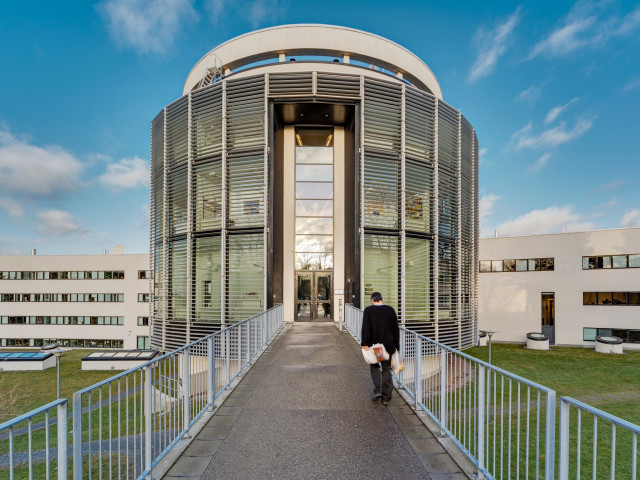Acoustics within environmental science. Noise and the dB-scale. Infra sound and ultra sound. Electromagnetic radiation and laser radiation and how to protect against intense laser radiation. Radiaactive decay and radioactive dose. Protection against radioactivity. Radon. Radioactive dating and long term deposit. Low level detection of pollutants.
SK183N Environmental Science II. Physics and Applications 6.0 credits
This course has been discontinued.
Decision to discontinue this course:
No information inserted
Information per course offering
Course offerings are missing for current or upcoming semesters.
Course syllabus as PDF
Please note: all information from the Course syllabus is available on this page in an accessible format.
Course syllabus SK183N (Spring 2015–)Content and learning outcomes
Course contents
Intended learning outcomes
The course will give knowledge about acoustis within environmental science, such as how infra sound can be used to perform environmental measurements. At Earth quakes, tsunamis, snow avalanches, ejection of missiles, blow outs at oil drill towers, infra sound can be used for detection. Undesired sound and noise and the dB-scale will be discussed. Electromegnetic radiation and protection against it, such as intense laser radiation will be discussed. Solar energy use in the form of large solar parks is a part of the course. Long time use of radioactive radiation, radioactive dose, protection against radioactivity is included. Radiation safety. Environmental laborations is a part of the course, where for exemple the thickness of the ozone layer is treated.
After the course the student will be able to:
- solve problems concerning acoustic phenomena within the environmental field.
- perform calculations concerning radioactive decay, do dose determinations, make estimates about long term staorage of radioactive material.
- perform calculations and measurements on the ozone layer and determine its thickness by using graphs from the labotations.
- discuss various methods within environmental science for low level detection such as mass spectrometry that also is dealt with as a laboration.
Literature and preparations
Specific prerequisites
- Completed upper secondary education including documented proficiency in Swedish corresponding to Swedish 3/Swedish B and English corresponding to English 6/English A . Specific requirements: knowledge of Mathematics corresponding to Mathematics 3C/D, Physics corresponding to Physics 2/B and Chemistry corresponding to Chemistry 1/A is required.
Literature
Environmental science II, Internetlärobok, Lars-Erik Berg, 2009.
Examination and completion
Grading scale
Examination
- TEN2 - Examination, 2.0 credits, grading scale: A, B, C, D, E, FX, F
- TEN1 - Examination, 2.0 credits, grading scale: A, B, C, D, E, FX, F
- LAB1 - Laborations, 2.0 credits, grading scale: P, F
Based on recommendation from KTH’s coordinator for disabilities, the examiner will decide how to adapt an examination for students with documented disability.
The examiner may apply another examination format when re-examining individual students.
If the course is discontinued, students may request to be examined during the following two academic years.
Examiner
Ethical approach
- All members of a group are responsible for the group's work.
- In any assessment, every student shall honestly disclose any help received and sources used.
- In an oral assessment, every student shall be able to present and answer questions about the entire assignment and solution.